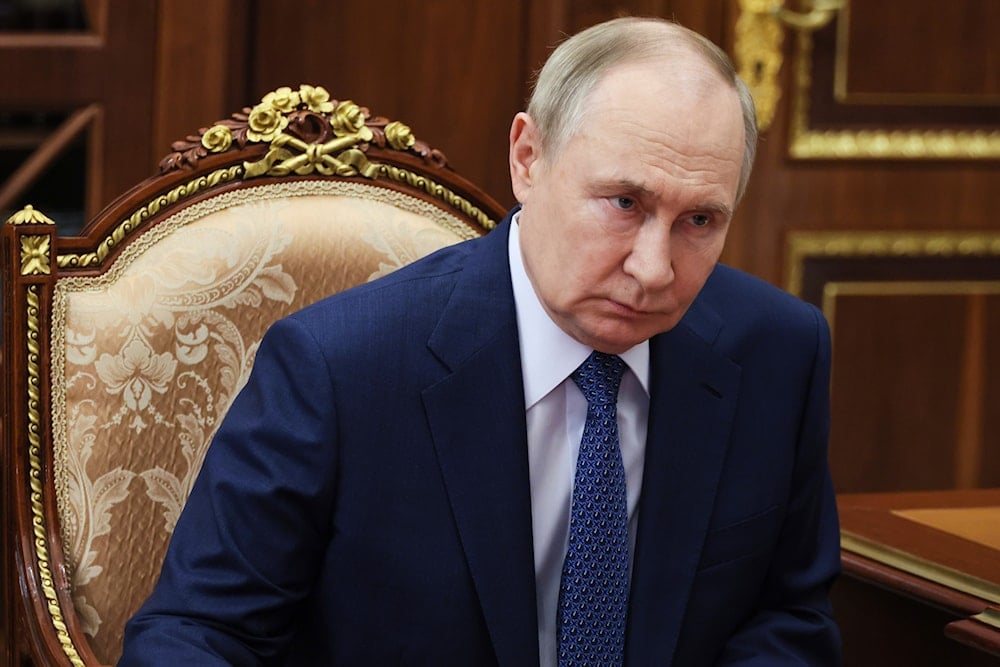No plans to strike Polish land, ready for talks: Russian MoD
The Russian Defense Ministry refutes claims of drone strikes crossing into Polish territory.
-

Russian President Vladimir Putin listens to the governor of the Smolensk region, Vasily Anokhin, at the Kremlin, in Moscow, Russia, on Wednesday, Sept. 10, 2025. (AP)
The Russian Defense Ministry confirmed on Wednesday that it has no plans to strike targets on Polish territory, noting that the maximum flight range of the drones used in the strike, which are alleged to have crossed the Polish border, does not exceed 700 kilometers.
The Russian Defense Ministry stated that "on Wednesday night, the Russian army launched a large-scale strike against Ukrainian defense industry facilities in the Ivano-Frankivsk, Khmelnytskyi, and Zhytomyr regions, as well as in Vinnytsia and Lviv." The statement noted that all launches achieved their objectives and destroyed their targets.
The Russian Defense Ministry affirmed that it is prepared to hold consultations with its Polish counterpart regarding the drones that are alleged to have crossed the border.
Poland claims drones infiltrated its airspace
This statement follows Polish Prime Minister Donald Tusk's claim that "drones which posed a threat were shot down over the country," which he identified as Russian without providing evidence, prompting the Polish government to invoke Article 4 of the NATO alliance.
"The shooting down of drones threatening our security is a success for Polish and NATO forces, which simultaneously changes the political situation," Polish PM Tusk stated, adding, "In this regard, allied consultations have taken the form of a formal request to activate Article 4 of the North Atlantic Treaty."
While Poland described the event as an airspace incursion, Belarus announced earlier today that it had shot down drones which, it claimed, had been forced off course by electronic countermeasures during the exchange of strikes between Russia and Ukraine.
Article 4 of the North Atlantic Treaty stipulates that any ally can request that consultations be convened whenever it believes that the territorial integrity, political independence, or security of any member of the alliance is under threat.

 2 Min Read
2 Min Read











